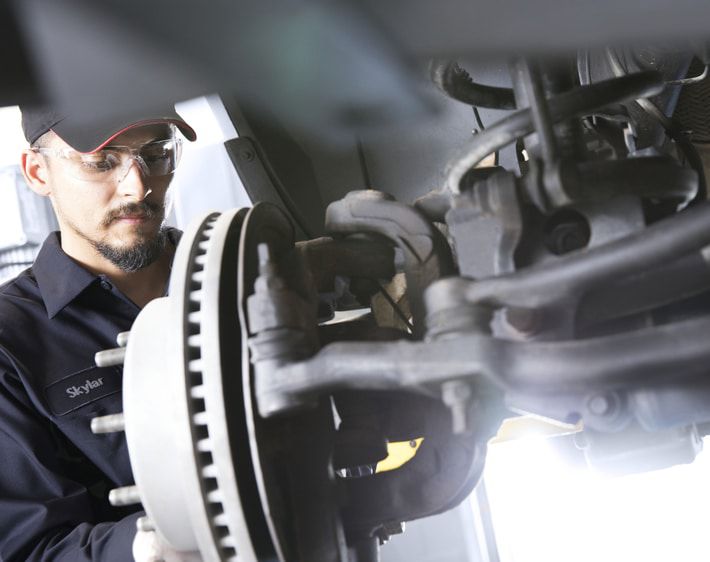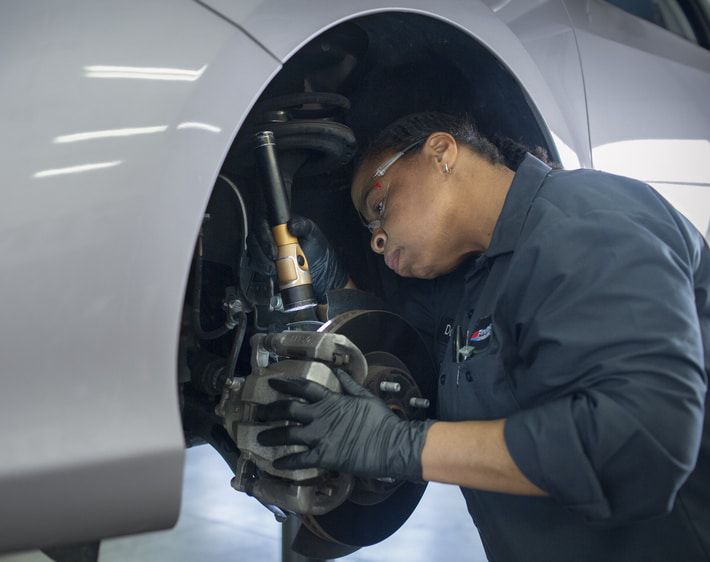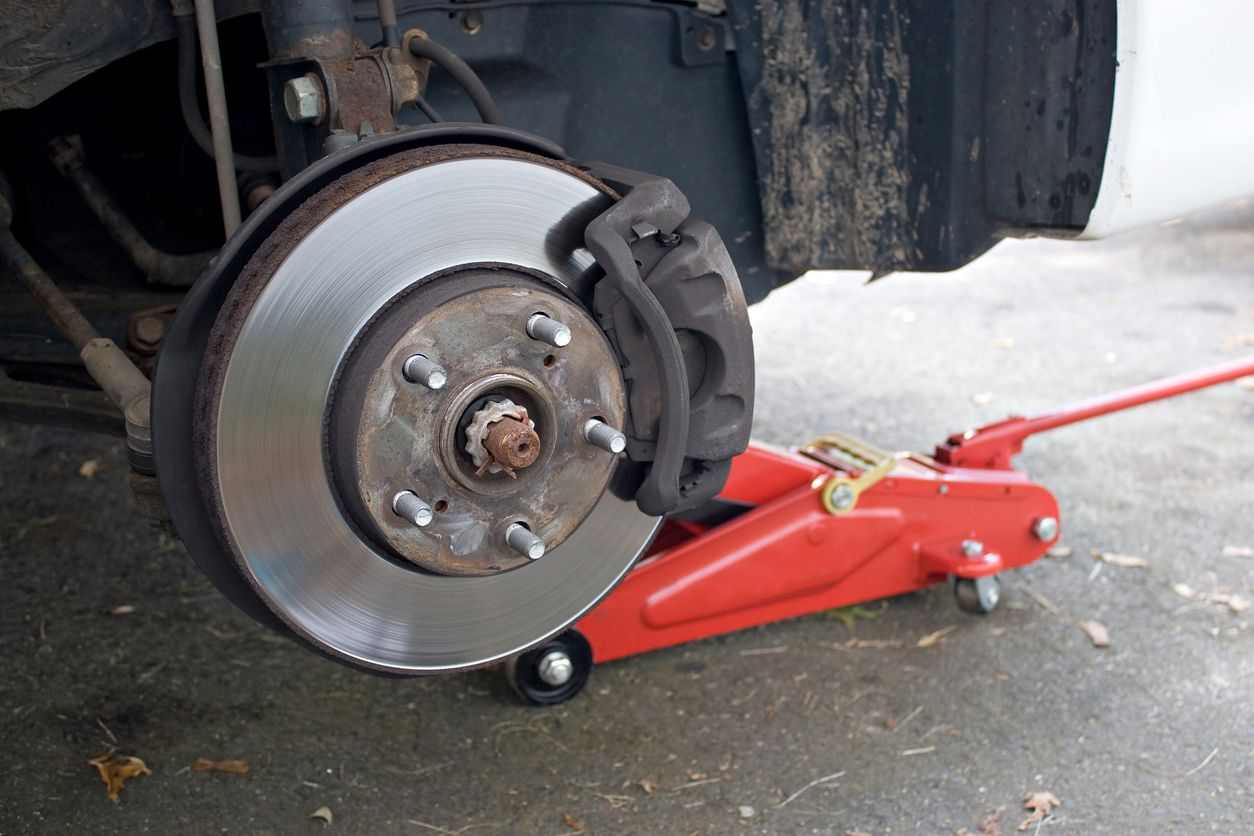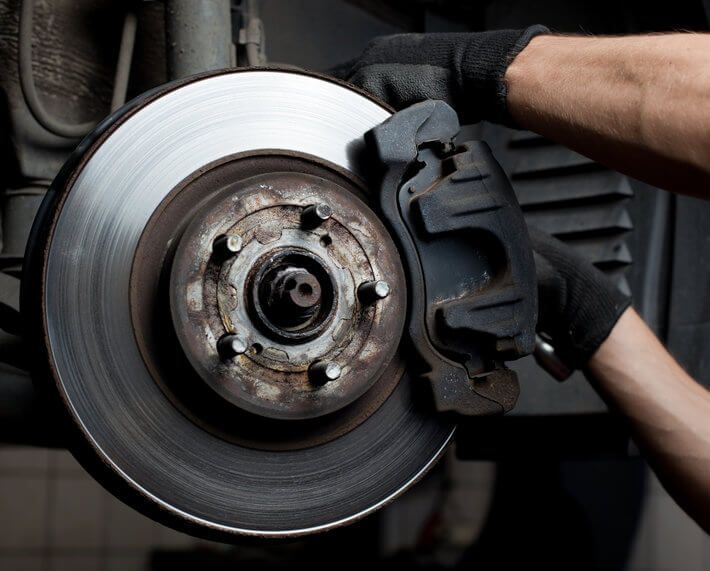Y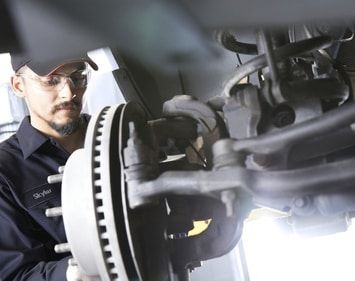
The pressure applied to your vehicle’s brake pads generates friction. This friction causes the car to slow or stop entirely, depending on how much force you apply to the brake pedal.
Whether you're stopping every few feet in bumper-to-bumper traffic or merely coasting to a halt at your neighborhood's four-way stop—your brakes are working hard to generate friction. Where there's friction, there's heat. Sometimes, there's too much of it.
Overheated brakes can show themselves in a few different ways, through different sights, smells, and sensations. Be on the lookout for the following signs, then follow our tips to help avoid overheating brakes in the future.
3 Signs Your Brakes Are Overheating
1. Your brake pedal feels soft.
Over time, water from the air can collect within your vehicle's brake fluid reservoir. When your brake fluid heats up from use, the water boils into steam and reduces the effectiveness of your brakes. This can cause what's called "brake fluid fade" and result in a soft or spongy feeling when you press down on the brake pedal. Note that a spongy brake pedal could also be due to other issues, like air in the brake lines, brake line damage, or low brake fluid.
2. The brakes start smoking (and they smell bad).
Brake pads burned by aggressive driving might actually begin to release smoke.
And where there’s smoke, there’s fire, right? Not necessarily, but this is a sign that there's an excessive amount of heat that requires your prompt attention.
You can tell your brake pads are overheating if something smells funky, literally. Drivers who have sniffed out overheated brake pads say that it's similar to the scent of burning carpet. That’s an odor that even the mightiest pine-shaped air fresheners will have a hard time fending off!
3. The brakes are squealing.
Constant, excessive friction can generate so much heat that the brake pads become “glazed.” That means they are smoothed down by aggressive driving, malfunctioning (stuck) parts of the braking system, and similar issues that make it more difficult to generate stopping friction. Glazed brake pads can cause your car’s braking system to emit a squealing sound when the brakes are applied. Read about other causes of squeaky brakes.
What To Do When Brakes Overheat
As soon as you feel, smell, hear, or even suspect that something is wrong with your brakes—the first thing you need to do is slow down and find a safe place to pull over.
While you're safely stopped and letting your brakes cool, use your phone to find a brake repair place near you. Then, use your best judgment to evaluate whether you’re able to drive to help or if you should call roadside assistance for towing, instead.
3 Ways to Avoid Overheating Brakes
1. Drive cautiously, not aggressively.
Make smooth and steady driving your goal! Always leave enough distance between your car and other objects, whether those are vehicles or pedestrians. Additionally, be mindful of your brake use when going downhill. “Riding the brakes” which means you’re not taking your foot off the pedal for prolonged periods, can lead to overheating.
2. Try engine braking.
“Engine braking” means downshifting or letting up on the accelerator to slow down rather than going straight for the brake pedal. Always pay attention to traffic and driving conditions to give yourself plenty of room to slow down instead of having to slam the brakes.
3. Visit us regularly, or visit us urgently.
Hey, we're here for you either way. But if you want to visit us on your own time, stop by for a free brake check to stay ahead of brake problems. That goes for checking your brake fluid every few months, too!
Our technicians can help prevent hot brakes from turning into a hot mess by diagnosing and repairing overheated brake pads. When push comes to shove, we know all power’s useless without stopping power. Schedule your appointment today!
